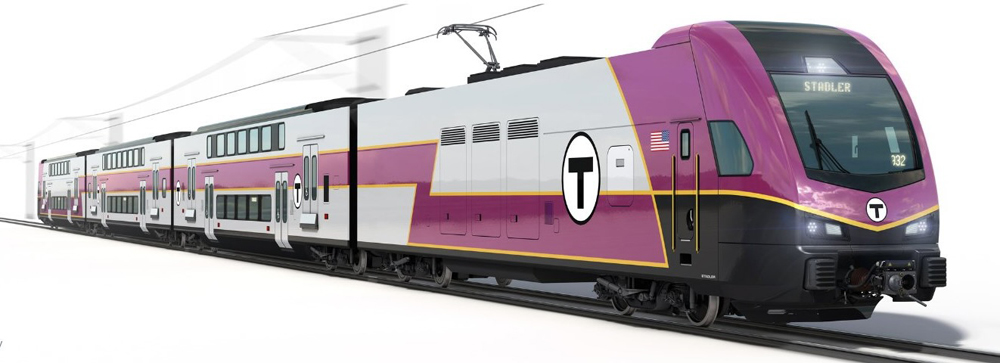
BOSTON — The Massachusetts Bay Transportation Authority board of directors today approved a $54 million plan to introduce battery-electric train service on the commuter rail Fairmount Line. The first train could enter service as early as 2028.
Keolis Commuter Services, the contract operator of MBTA’s commuter rail lines, submitted the proposal to introduce battery-electric multiple unit trainsets on the Fairmount Line last December. The plan first became public in March, when the MBTA solicited bids for zero-emission equipment and operations under a “due diligence posting,” indicating it was willing to accept the Keolis proposal but wanted to determine if any other companies were interested [see “MBTA plan would introduce battery-electric equipment …,” Trains News Wire, March 17, 2024]. The one other company that offered a proposal did not meet the MBTA’s specifications, an official said.
The MBTA said the board’s vote allows the agency and Keolis to finalize contract details, including a timeline for service to begin.
“Understanding the billions of dollars needed to fully electrify our entire system, this is the first step that I believe will pave the way to a profound transformation that can bring the future of our rail network that much closer,” MBTA CEO Phillip Eng said in a press release. “I thank Keolis, the MBTA’s Rail Modernization and Railroad Operations team, and all of our support groups as we focus on delivering improved service that is environmentally friendly for future generations to come.”
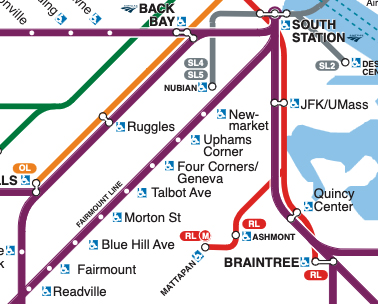
The proposal anticipates increasing service on the nine-station, 9.2-mile Fairmount line to every 20 minutes on weekdays and every 30 minutes on weekends. The current diesel-powered service operates every 45 minutes on weekdays and at 90-minute intervals on weekends. The agreement calls for Keolis to develop specifications for the equipment and choose a manufacturer, and then lease and manage the BEMU equipment fleet, as well as the power and charging infrastructure and a new maintenance facility.
“We’re thrilled that our proposal has been approved and that we are able to partner with the MBTA to introduce decarbonized service to the Fairmount Line community,” said Abdellah Chajai, CEO of Keolis Commuter Services. “Battery-electric trains will transform the Fairmount Line, allowing for more frequent trips, more reliable service, and reduced carbon emissions.”
The trainsets will have the ability to charge their batteries on or run off overhead catenary where it is available, as at South Station, and otherwise run on their onboard batteries. They will allow the service to experience at least some of the benefits of full electrification — such as elimination of diesel emissions and faster acceleration and deceleration — without the high costs of stringing catenary and other electric infrastructure.
The Boston Globe reports that Mike Muller, the MBTA’s executive director of commuter rail, estimates the battery-electric operation will cost the agency about $30 million more per year, taking into account the cost of the train leases. Beyond today’s $54 million commitment, the MBTA expects to spend another $70 million on associated construction contracts related to the project.
The MBTA becomes the second commuter operator to commit to the introduction of battery-electric equipment. Chicago’s Metra has contracted with Stadler USA for eight two-car battery-electric trainsets for use on the Beverly Branch of its Rock Island District [see “Metra signs deal with Stadler USA …,” News Wire, Feb. 21, 2024. Metra expects the first of those trainsets to be delivered in 2027-28.






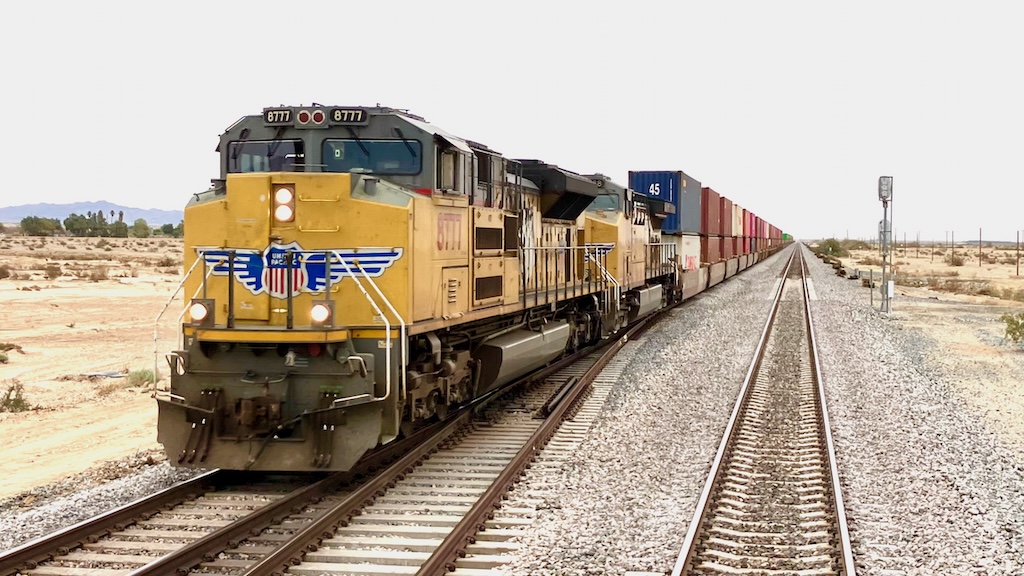

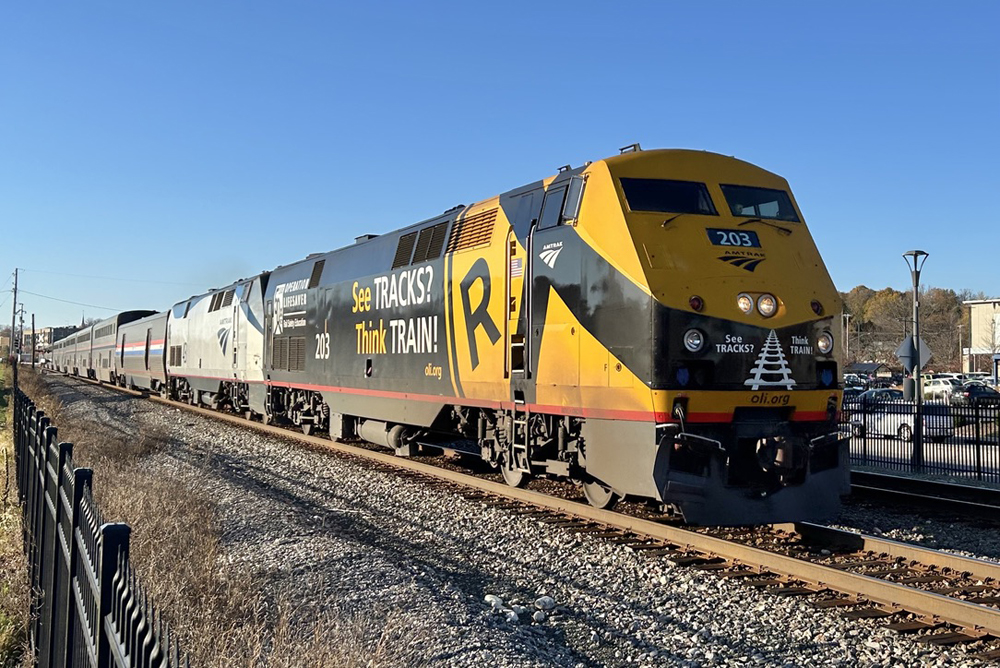
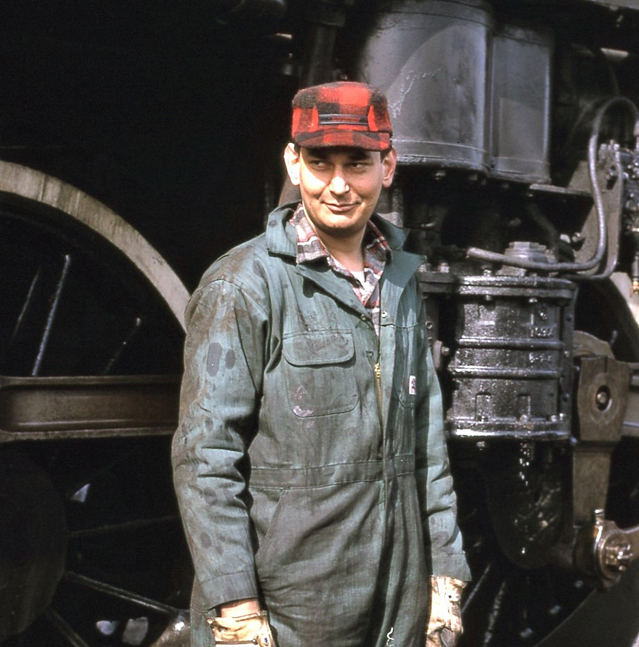




I really hope it has K5LA and E-Bell, That would sound like Amtrack SC-44
diesel locomotives running on biofuels and natural gas can help the environment too in addition to electric and battery
No, they can’t.
Biofuels are a complete scam and deploying a natural gas to support a few commuter trains would be wildly expensive, with none of the benefits of electrification.
And neither solves the real problem that diesel electric push-pull trains are slow to accelerate, making them terrible for commuter trains. Frequency is key to ridership and the 45 minute headways the dirty diesels can manage is next to useless for most potential riders.
Every politico is afraid of biting the bullet. The mainline to Providence (NEC) is electrified and some additions would be needed for commuter service. Next step is electrifying the 9.2 miles of the Fairmount line. Even as we sit here there are active production lines of electric MUs by Stadler and Alstom. The T is already in the process of procuring more multilevel coaches to succeed their remaining single level stock. Maybe Rotem has an electric version of the coaches they’re delivering.
In steam days the future was electrification. Then came the diesel-electric and that was viewed as the answer: electrification by way of bringing along your own generation with every train. But all that did was trade single fuel steam motive power (coal or oil) with single fuel diesel locomotives. The railroads have been actively avoiding electrification for almost a century.
Of course the Fairmount Line, all politics. (It’s a minority neighborhood ….) MBTA dumps its policies of a uniform go-anywhere fleet, pays for charging infrastructure, and pays a premium for the rolling stock, while bowing to the corrupt god of non-existent zero-emissions. I will demonstrate in the next paragraph why this is 100% bull surplus. Here I go:
The Providence Line is electrified. Has been for quite some time, somewhere close to thirty years, don’t recall the exact date. Does MBTA run electric trains on a long-electrified line? No. Has MBTA even announced a date when it would begin to do? Not that I’m aware.
As MBTA flatulates out its green goal of all-electric suburban lines (many hundreds of miles), why not begin three decades ago to Attleboro, Providence, and PVD Rhode Island Theodore Frances Green Airport.